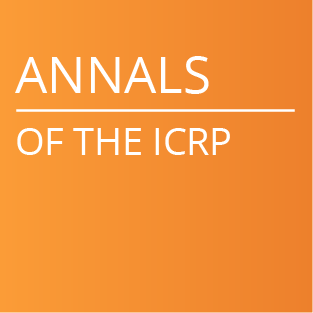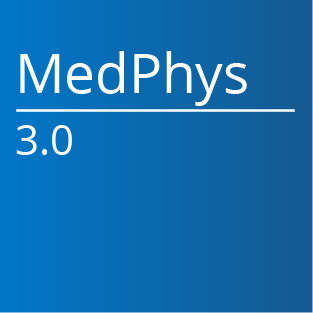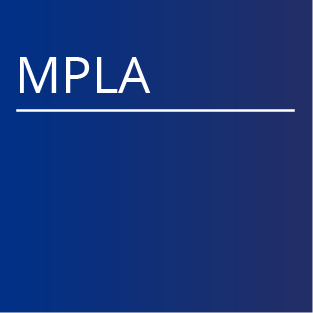| This Policy is No Longer Active. | |||
| Policy number | Policy name | Policy date | Sunset date |
| PP 2-B | Position Paper on Licensure for Medical Physicists | 11/29/2000 | 12/2/2003 |
| Section No section assigned |
|||
| Policy source | |||
| Policy text | |||
|
Medical professionals bear many responsibilities before the public, but none is more important than the charge to ensure the highest level of competence from those providing medical care. Only a properly trained and credentialed medical physicist can fully appreciate the complexity of a medical procedure involving the use of radiation and thereby help to assure correct placement, quality, and quantity of radiation dose. The unique qualifications of the medical physicist are necessary to minimize the risk of injury to the patient, medical personnel and the general public from the misuse of radiation. Therefore, it is the duty of our profession to assure than there are mechanisms in place to accredit graduate and residency programs, to maintain board specialty certifications, and to encourage the formation of state licensure boards for medical physicists.
The American Medical Association states: "A health profession or occupation should be licensed if the practice of that profession or occupation by persons who have not shown themselves to be competent and qualified to deliver health care services would pose a risk to the life, health, or safety of the public." The American College of Radiology states that: "The medical well-being of patients, as well as the health, safety and welfare of the public are potentially impacted by measurements, calculations and adjustments concerning nuclear medicine, diagnostic and therapeutic radiological equipment by medical radiological physicists." The college also "strongly supports the concept of state licensure or certification mechanisms for medical radiological physicists." In every state physicians are licensed. In many states, technologists are licensed. There are many compelling reasons why licensure for medical physicists is in the public interest.
Radiologists, physicians, health care administrators, agency inspectors and the general public have no clear guidelines for judging the qualifications or abilities of a medical physicist. Other than the civil courts, the public has no redress to deal with issues such as fraud, substance abuse, malpractice, or unethical behavior. In today's regulatory climate, it is not unusual for the state to initiate the credentialing and oversight of an entire profession. Our profession has an obligation to regulate itself and the practice of medical physics if it is truly to serve the public interest.
The public deserves the benefit of the best our profession can offer. The citizens need to be protected from unqualified or unsupervised individuals who claim the ability to perform medical physics services. If the medical physicists fail to restrain such individuals, the quality of service offered by the profession will likely be reduced. This would erode public confidence in these services.
Licensure would facilitate improvement in the general areas of professional status and visibility. Some of the problems that state licensure of medical physicists will help to address are: The JCAHO now requires a board certified or "equivalent" medical physicist to be responsible for all radiological procedures in the hospitals it reviews. The new Medicare screening guidelines are rather ambiguous with respect to who is qualified to perform the quality improvement tests on mammography units. It has proven difficult to enforce these directives since there are no clear guidelines for judging the qualifications or abilities of the medical physicists. Most state license or maintain lists of "inspectors" whose reports are accepted by the state for the purpose of radiation safety. The minimum qualifications for these "inspectors" are very often less than the least acceptable to practice in our profession. Conversely, there are some state inspection systems which do not accept the equipment reports of qualified medical physicists. The state agency duplicates the efforts of the medical physicist by reinspecting the facility. Licensure would likely be normalizing influence on standards relating to this effort. The American Association of Physicists in Medicine supports licensure. We must prepare for the future and the future is now. (Note: An operating fund reserve category amounting to $60,000 has been set aside to support licensure. Up to $10,000 will be allocated to individual state licensure efforts after demonstration of serious intent. Criteria for demonstrating serious intent have been set by the Professional Council.) |
|||
| Policy version history | ||||
| Policy number | Policy name | Policy date | Sunset date | Active? |
|---|---|---|---|---|
| PP 2-A | Position Paper on Licensure for Medical Physicists | 11/1/1992 | 11/28/2000 | Inactive |
| PP 2-B | Position Paper on Licensure for Medical Physicists | 11/29/2000 | 12/2/2003 | Inactive |
| PP 2-C | Position Paper on Licensure for Medical Physicists | 12/3/2003 | 7/30/2008 | Inactive |
| PP 2-D | Licensure and The Medical Physicist's Role in the Practice of Medicine - A Guide for Administrators and Regulators | 7/31/2008 | 12/31/2021 | Inactive |
| PP 2-E | Qualifications and Practice Standards for Clinical Medical Physicists: A Guide for Government and Regulators | 11/19/2021 | 12/31/2026 | Inactive |
| PS 11-A | Qualifications and Practice Standards for Clinical Medical Physicists: A Guide for Government and Regulators | 11/19/2021 | 12/31/2026 | Active |



















